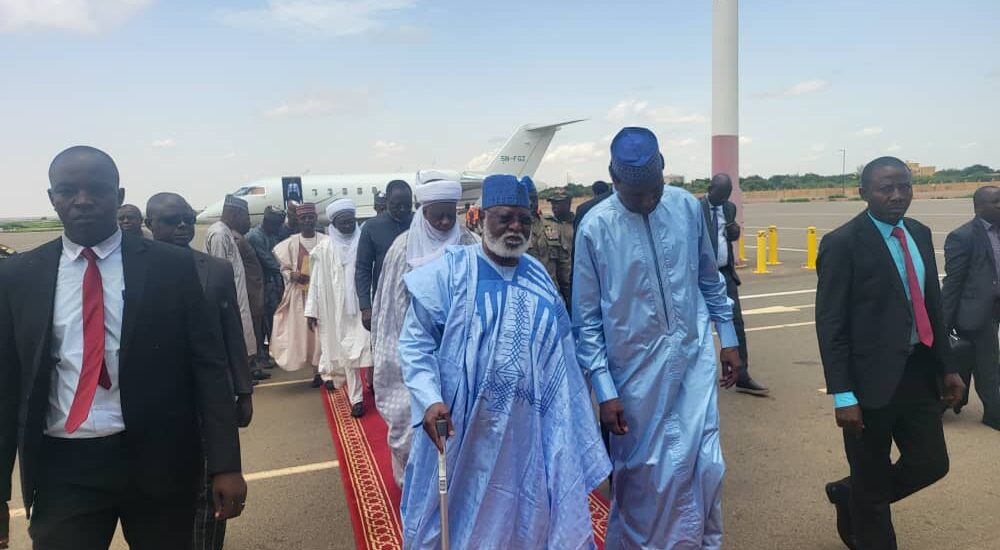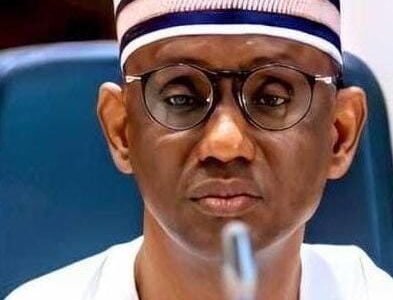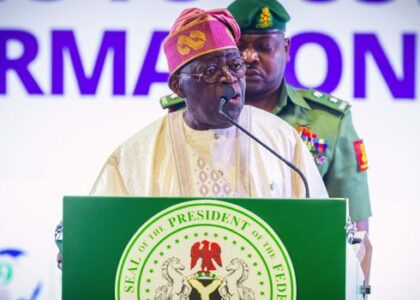By Paul Ejime
An ECOWAS delegation led by Nigeria’s former Head of State, retired Gen. Abdulsalami Abubakar met in Niamey on Saturday, 19th August with Niger’s military regime officials led by Brg.-Gen Abdourahamane Tchiani.
Diplomatic sources said the ECOWAS team, which included Nigeria’s Sultan of Sokoto Alhaji Muhamad Sa’ad Abubakar also met with Niger’s deposed President Mohamed Bazoum.
Abubakar had led a previous ECOWAS Mission, which only went as far as the Niamey airport, with the military junta citing security concerns then following the sanctions imposed by ECOWAS, including a no-fly zone over Niger after the 26th July coup.
The governing military Council had also received on Thursday in Niamey, the United Nations Special Representative for West Africa and the Sahel, Leonardo Santos Simao.
The negotiations are seen as last-ditch efforts to resolve the Niger impasse through diplomatic means.
The peace missions followed Friday’s second emergency meeting in Accra, Ghana by regional Chiefs of Defence Staff, who announced that an undisclosed “D-Day” had been decided for possible deployment of the ECOWAS Standby Force to restore constitutional order in Niger.
Bazoum, some of his family members and ousted government officials are detained by the junta, which has already named a 21-member cabinet of ministers headed by a civilian Prime Minister.
The Tchiani-led regime had threatened to kill the deposed president if attacked by ECOWAS forces.
Three ECOWAS member States under military rule – Mali, Guinea, and Burkina Faso – have expressed solidarity with the Niger regime, with the Mali and Burkina Faso juntas also warning that both countries will defend the Niger armed forces and citizens if attacked by external forces.
ECOWAS might be trying to end recurring military coups in the region, but France and the U.S. which have military bases in Niger are also defending their defence and economic interests in Niger, with other players such as Russia and China waiting in the wings.
Popular opinion in the region favours the use of diplomacy for a peaceful resolution of the Niger impasse, over military intervention.
Apart from the complexity and competing domestic and international interests, the use of military force is perceived as an externally-driven agenda and could backfire, resulting in escalation into a catastrophic war.
Meanwhile, reports from Niamey indicate that ECOWAS sanctions are biting hard, with avoidable deaths in hospitals.
The sanctions include border closure, freeze of financial transactions by member States and the suspension of electricity supplies by neighbouring Nigeria to Niger.
The UN humanitarian agency has urged ECOWAS and partners to allow the movement of humanitarian supplies to ease sufferings by the population from the sanctions.
It is believed that current negotiations between ECOWAS/UN and the junta leaders could cut the ice towards a peace solution.
Gen. Abubakar led one of the shortest political transitions from military to civilian rule in Nigeria, and it is expected that his experience could be useful in Niger.







